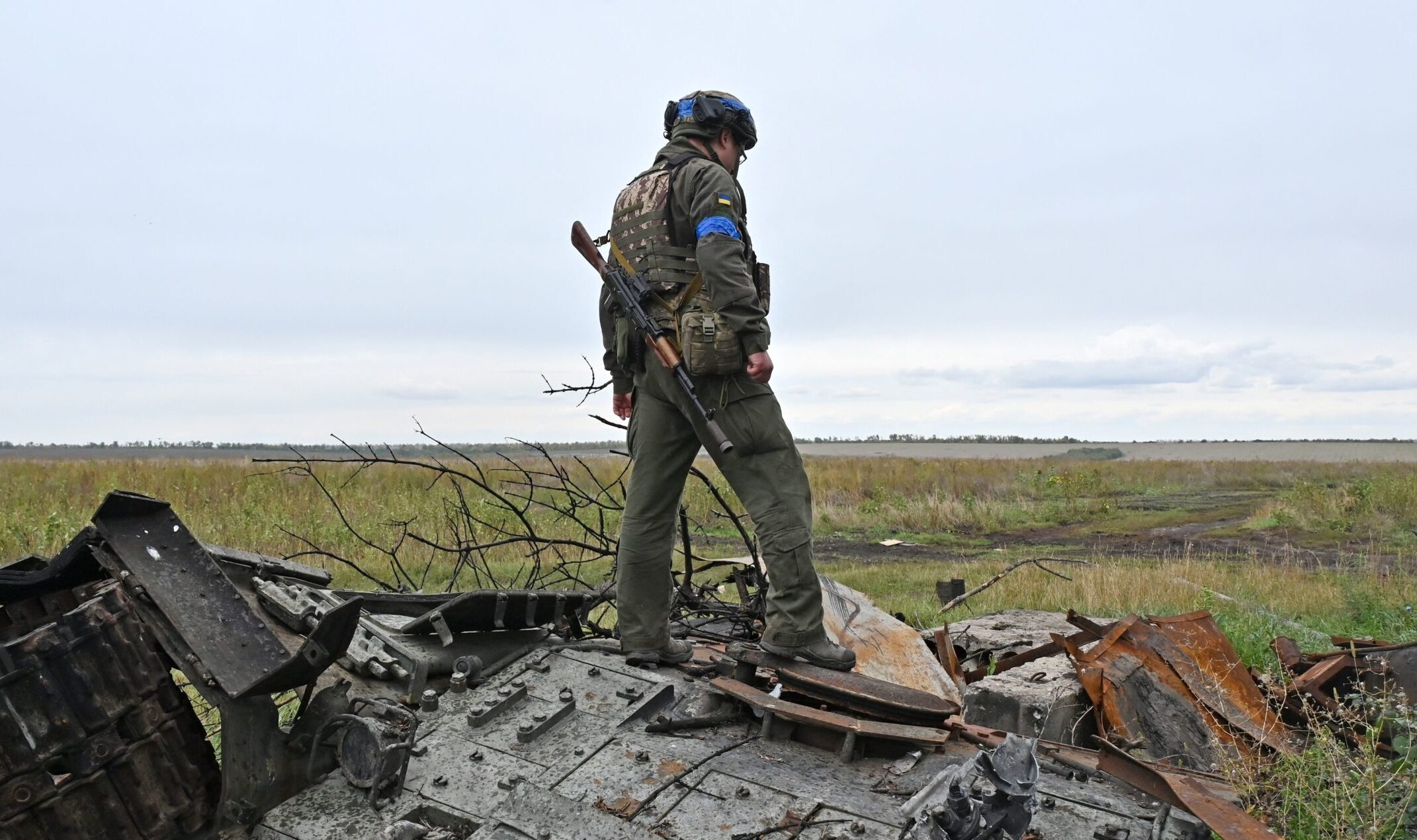The Challenges of a Ukrainian Peace
Wrapping up the war will not be the end of the headache in Eastern Europe.

Let’s assume peace in Ukraine—granted, a very big-ticket axiom. In our premise, we may include the speculation that Ukraine has ceded, de facto if not formally, at least some of the territory conquered by Russia in the course of the last three years; those who insist that something like total Ukrainian victory is achievable sound suspiciously similar to those who thought the Afghanistan occupation was indefinitely sustainable, and may be safely disregarded for the sake of the exercise.
A report sponsored jointly by the World Bank, the European Commission, the United Nations, and the Ukrainian government found that the cost of postwar reconstruction will run to a cool $524 billion. (For those who enjoy irrelevant historical comparisons, the Marshall Plan was in the ballpark of a mere $175 billion in current dollars.) That’s a lot of dosh, and the West is going to put up most of the capital. February’s MacGuffin, the Ukraine minerals deal, gives a taste of what’s to come: Western powers and organs are going to put up the money in exchange for whatever goodies are to be had, and this will be framed as the West winning the peace. Those are just the facts of life. You see these deals even in notional First-World countries that are poor in capital; most of the big-ticket infrastructure in Greece is French- or German-owned.
The problem is that this kind of thing tends to cultivate local resentments among the populations notionally benefitting. As part of a funding deal, the International Monetary Fund demanded a reform of Ukrainian land markets that was enormously unpopular and passed ultimately only because Covid strictures kiboshed the obstructive mass protests that greeted earlier efforts to carry out the reform. It’s not clear that, after the war, “Ukraine for the Ukrainians” sentiments will have less appeal. (Western European resentment of the Americans in the postwar period is instructive.)
This touches on the bigger question of what Ukrainian politics are going to look like after the deal is inked. President Volodymyr Zelensky, much as some Western critics may dislike him, is a pragmatist and relative moderate in the Ukrainian political arena. Ukraine’s nationalist right has always been an uncomfortable wartime bedfellow for him, and it is not difficult to imagine a massive political assault on him for concluding the war, a “stab-in-the-back” narrative. This will be aggravated if it seems he has sold out the nation’s resources to European and American interests. At the same time, ordinary political resentments have in large part been suppressed during wartime—hence the eruption of protests against his move against the national anticorruption organs. Some extraordinary political resentments are in the mix, too: The government suppression of the Ukrainian Orthodox Church will be a handy tool for anti-Zelensky nationalists looking to frame the president as an anti-Ukrainian Western toady. Perfervid Western Ukraine-supporters like to compare Zelensky to Churchill; like Churchill, Zelensky may end up out on his derriere after the resumption of normal elections.
And if Zelensky tries to hold onto power by nondemocratic means—legally plausible if the peace is arranged on Korea-style terms, where the war is indefinitely suspended rather than formally closed—the prospects aren’t necessarily much better. On the best of days, the mass reintegration of military and paramilitary veterans into peacetime society is tricky. If the veterans think they’ve been sold down the river? Good luck.
This grim scenario is worth contemplating to temper Western appetites in the peace. Two appetites in particular: greed and aggression.
Subscribe Today
Get daily emails in your inbox
Americans especially feel—justifiably—that they have funded a war that has little to do with their interests. The impulse to make good on some of the losses is understandable and even laudable. But hard bargaining could easily encourage a destabilizing postwar revanchism; prudence counsels a light hand. The Indian experience is instructive: American support for Indian anticolonialism did not stop Indira Gandhi from going after American corporations in the ’70s, famously resulting in the withdrawal of Coca-Cola from the Indian market. Gratitude goes only so far when a nation is trying to consolidate itself.
Similarly, anxiousness to end the war and the desire for lesser powers to play at the big table should not trump circumspection about security guarantees to Ukraine. The UK, France, Germany, and Turkey have all made noises about sending peacekeeping forces, and the U.S. has made vague gestures at some sort of involvement. These nations must consider that a more turbulent regime may replace the Zelensky government; is it unimaginable that such a regime would not sponsor paramilitaries in Russian-occupied territories, providing a casus belli for Russia to reopen the war? There is little love for Putin in the West, but Western revealed preference is not getting directly involved in a shooting war with him. (And it’s prudent to avoid a shooting war with a nuclear power.) Security guarantees must be made with an eye toward a change in management at Kiev. Western powers getting heedlessly chain-ganged could lead to something worse than the current war.
Right now, all eyes are on the negotiations. But it’s worth sparing some time to contemplate prudent policies for the peace.